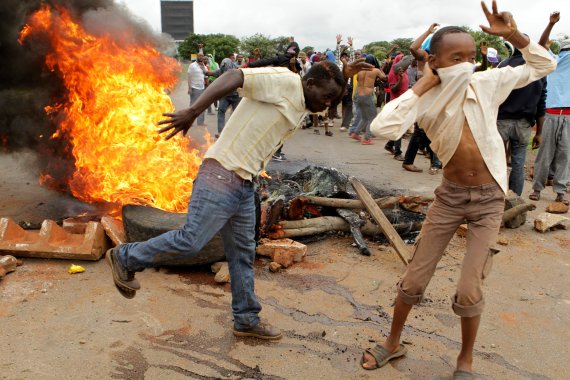Tekst: Gina Ho
Overnight, people are out of pocket

‘In Zimbabwe we use several currencies, such as US dollars and South African rands, as well as “bond notes” that the government introduced in 2016. The government insists that 1 bond note is equivalent to 1 US dollar, but it’s not true. It’s more like 3 to 1.
President Mnangagwa says he’s increasing fuel prices to protect the economy from resource exploitation. Other countries such as South Africa were able to take advantage of the low bond note value and buy up our fuel. But instead of increasing prices and hurting its own citizens, the regime could have just laid down laws forbidding foreign purchases of fuel. Despite the price increases, the government is still paying the same salaries. So overnight, people are out of pocket, and they are protesting against this unfairness.
Some are protesting on the streets, and some are protesting at home by not going to work. It’s been reported on social media that security forces went to people’s homes and threw tear gas in, and when they came out they beat them. The government turned off the internet claiming it was for security reasons, but many people think that was meant to stop people from sharing videos of the security force’s gross misconduct. There’s only one TV channel in Zimbabwe and it is influenced heavily by the government.
The main problem is the military being too involved. There are many key ex-army officials who are active members of the ruling party, so from a layman’s point of view, it is hard to separate the army from the ruling party.
People are finding it hard to meet their basic needs. As for me, after I finish my studies I want to go and implement my ideas back home, but how could I if the situation is like this?’

